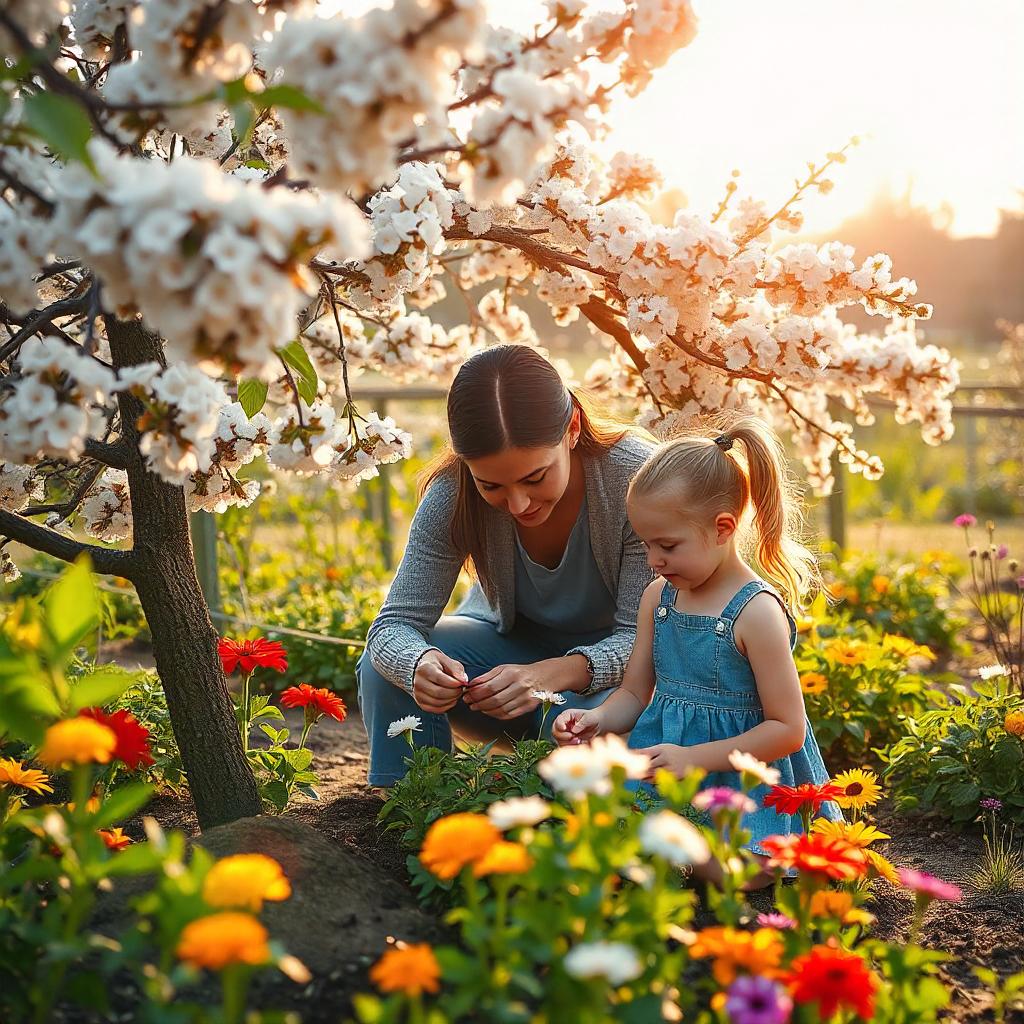Introduction
In an era where environmental concerns dominate global discussions, the Flowering Tree Permaculture Institute stands as a beacon of hope. Dedicated to promoting sustainable living and ecological balance, this institute has become a hub for individuals seeking to harmonize with nature. With its innovative practices and commitment to community education, it continues to inspire change across the globe.

The Foundation of Flowering Tree Permaculture Institute
The Flowering Tree Permaculture Institute was established with the vision of fostering sustainable ecosystems. Grounded in the principles of permaculture—a design philosophy that mimics natural ecosystems—the institute provides a roadmap for living in alignment with nature. It began as a small initiative and has grown into an influential organization championing sustainability.
What is Permaculture?
Permaculture combines the words “permanent” and “agriculture” to describe a system of agricultural and social design principles centered on natural ecosystems. At its core, permaculture emphasizes the following principles:
- Care for the Earth: Protecting natural systems and biodiversity.
- Care for People: Ensuring a quality of life that sustains well-being.
- Fair Share: Redistributing surplus and managing resources responsibly.
These principles guide the practices and philosophies taught at the Flowering Tree Permaculture Institute.
The Mission and Vision
The institute’s mission is to educate individuals and communities about sustainable living. Its vision is to create a world where humans coexist harmoniously with nature. By integrating traditional knowledge with modern ecological insights, the institute aims to address environmental challenges and promote resilience.
Key Initiatives of the Institute
1. Education and Training Programs
The institute offers workshops, courses, and certification programs that teach participants about:
- Permaculture design principles
- Sustainable agriculture techniques
- Water conservation and management
- Renewable energy solutions
These programs are designed for beginners and experts alike, ensuring accessibility for everyone interested in sustainability.
2. Community Outreach
Through community-driven projects, the institute empowers local populations to adopt sustainable practices. These initiatives include:
- Establishing community gardens
- Conducting eco-literacy campaigns
- Hosting permaculture design courses in underserved areas
3. Research and Innovation
The institute invests in research to refine sustainable practices. Innovations in soil regeneration, organic pest management, and climate-resilient crops are among its notable contributions.

The Impact of the Institute
The Flowering Tree Permaculture Institute’s work has left a lasting impact on:
1. Environmental Restoration
By promoting regenerative agriculture, the institute has:
- Rehabilitated degraded lands
- Increased biodiversity
- Improved soil health
2. Community Empowerment
Communities involved in the institute’s projects report improved livelihoods and food security. The knowledge shared empowers individuals to take charge of their local environments.
3. Global Awareness
Through online resources, publications, and international partnerships, the institute has reached a global audience, spreading the message of sustainability.
Stories of Transformation
Case Study 1: Reviving Degraded Lands in Kenya A partnership with local farmers in Kenya led to the transformation of barren lands into fertile grounds teeming with crops and wildlife. This project exemplifies the institute’s ability to create tangible change.
Case Study 2: Urban Gardens in New York City Collaborating with urban communities, the institute helped establish rooftop gardens in NYC. These gardens provide fresh produce and green spaces for residents, demonstrating the versatility of permaculture.
Challenges and the Way Forward
Despite its successes, the institute faces challenges such as:
- Limited funding for large-scale projects
- Resistance to adopting new practices
- Climate change impacts on ecosystems
To address these issues, the institute aims to:
- Strengthen partnerships with global organizations.
- Advocate for policies supporting sustainable practices.
- Expand its reach through digital platforms.

How to Get Involved
Individuals can support the institute’s mission by:
- Attending workshops and training sessions
- Volunteering in community projects
- Donating to fund its initiatives
By getting involved, you become part of a movement dedicated to nurturing the planet for future generations.
The Principles of Permaculture
Care for the Earth
Every action we take at the institute prioritizes the health of our planet. By building soil, conserving water, and restoring biodiversity, we work to heal the land.
Care for People
Permaculture teaches us to care for one another. We create inclusive spaces where people can learn, grow, and thrive together.
Fair Share
We practice and teach equitable resource distribution. Excess yields are shared within the community, ensuring no one is left behind.
Success Stories
A Thriving Food Forest
One of our flagship projects is a 5-acre food forest that produces a diverse array of fruits, nuts, and herbs. This living ecosystem not only provides sustenance but also serves as a habitat for local wildlife.
Empowering Youth
Through our school partnerships, students learn about sustainable living practices. Many young participants have gone on to create their own backyard gardens and lead environmental initiatives.
How to Get Involved
- Volunteer with Us: Help maintain our gardens and support our community programs.
- Attend a Workshop: Gain practical skills and knowledge.
- Donate: Your contributions help us expand our impact.

FAQs
- What is permaculture? Permaculture is a system of agricultural and social design principles centered around simulating or directly utilizing the patterns and features observed in natural ecosystems.
- Do I need gardening experience to join? No prior experience is needed! Our programs are designed for everyone, from beginners to advanced practitioners.
- Where is the institute located? We are located in [insert location here]. Check our website for detailed directions.
- Are workshops family-friendly? Yes, many of our workshops are designed to include activities for children and adults.
- What should I bring to a workshop? Comfortable clothing, a notebook, and a reusable water bottle are recommended. Specific requirements will be shared upon registration.
- Can I visit the demonstration gardens without attending a workshop? Yes, our gardens are open to the public during designated hours.
- How can I start a permaculture project at home? Begin with small steps like composting, growing native plants, and conserving water. Our workshops provide detailed guidance.
- Does the institute offer online resources? Yes, we have webinars, e-books, and online courses for those who cannot attend in person.
- How is permaculture different from traditional farming? Permaculture focuses on creating self-sustaining ecosystems rather than relying on external inputs like chemical fertilizers and pesticides.
- How can I support the institute’s mission? You can volunteer, donate, or spread the word about our work. Every effort helps us move closer to a sustainable future.
Conclusion
The Flowering Tree Permaculture Institute exemplifies the power of education, innovation, and community in addressing global environmental challenges. Its commitment to sustainability and resilience offers a model for a brighter, greener future. By supporting and learning from this institute, we can all contribute to sowing the seeds of sustainability.








